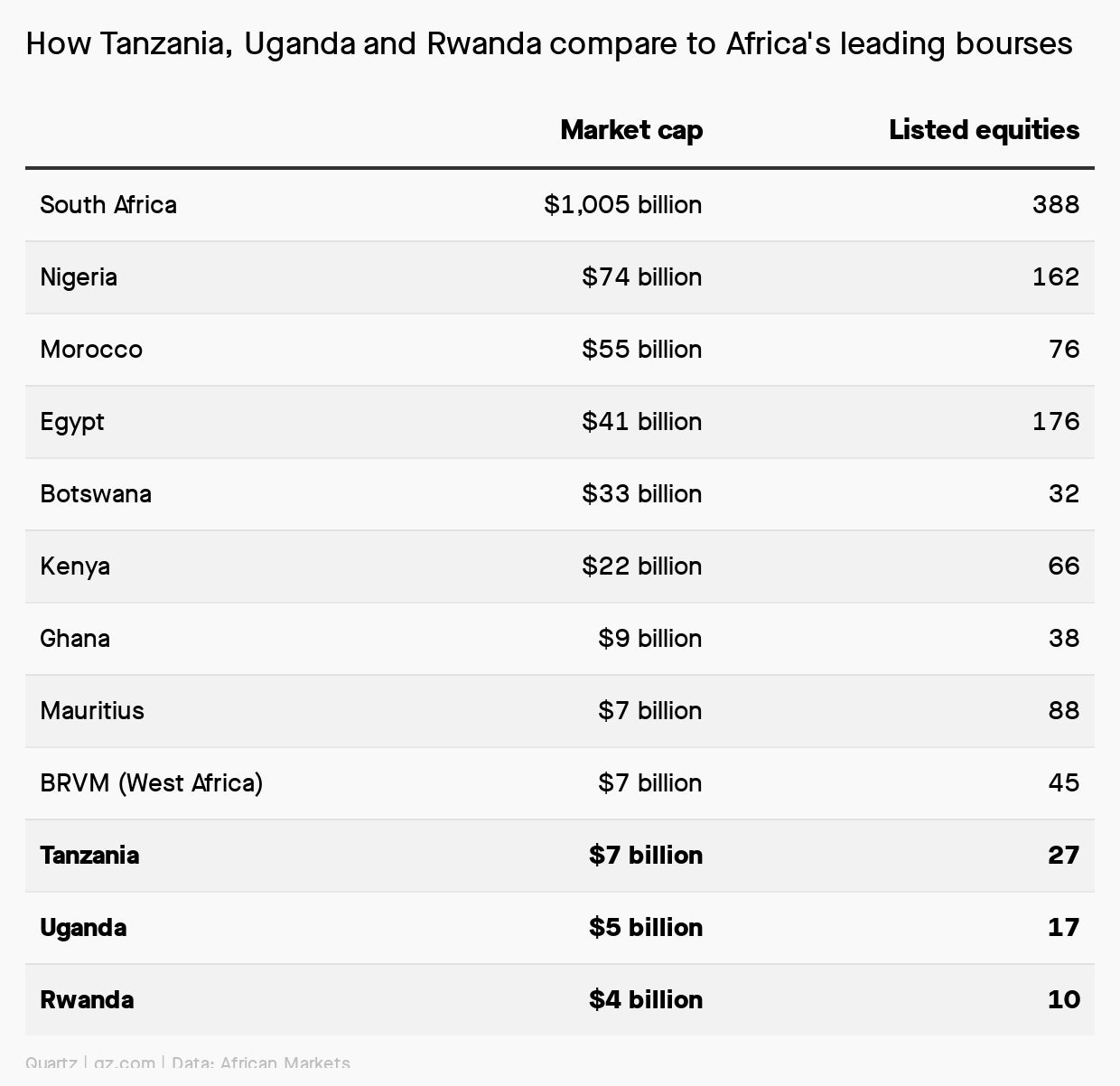Africa’s crypto moment, fashion gets sustainable, Lagos’ dangerous air
Hi, Quartz Africa readers!

Hi, Quartz Africa readers!
More energy
Of the oft-quoted 600 million Africans living without electricity across the continent, it is estimated about 150 million of them live within range of their local public grids but are still not connected.
The challenge is that as populations have grown particularly in rural areas, governments have not prioritized spending the hundreds of millions of dollars, possibly billions, needed to expand traditional power grids to more households.
Over the last couple of decades investors, NGOs, and innovators have been building solar-powered mini-grids to serve small communities in rural areas as a way to help close this gap. Much of the development has accelerated in the last three years, the Africa Minigrid Developers Association (AMDA) says in a new study.
The AMDA, whose 30 company members represent around 35% of the operational, non-utility-owned renewable energy minigrids in 12 countries across Africa now has 41,000 connections reaching more than 250,000 people and businesses. Kenya and Tanzania in particular have shown the greatest growth in the number of connections accounting for 70% of all new connections.
The rapid growth has coincided with a reduction in costs—the average price per connection has dropped to $733 in 2019 from $1,555 earlier in the decade. Capex outlay has more than halved in that time and the cost for new entrants has fallen by a third. The average installed costs is also said to have decreased by 65% to $6,200/kW in 2018 from $14,000/kW in 2015.
Since 2012 sub-Saharan Africa’s minigrid sector has received up to $1.6 billion in funding. However, due to limited capacity of governments to manage procurement processes, most of this funding has not been disbursed, according to AMDA. It says just 13% of the approved funding had been disbursed at the time of the study’s writing.
One of the biggest obstacles to the successful roll-out of minigrids across the continent is the uneven regulatory environment which means it can take up to a year on average to achieve compliance for just one site.
To be clear, the average licensing time for approving a local minigrid has dropped by half over the last five years, but given the World Bank estimates the continent needs as many as 140,000 minigrids, it is still taking too long to achieve the meaningful scale needed anytime soon.
— Yinka Adegoke, Quartz Africa editor
Five stories this week
Scientists blame climate change for bacteria that caused the mysterious deaths of 300 African elephants. After some 300 elephants were found dead in Botswana’s Okavango Delta a few weeks back it was noted their tusks were left untouched meaning it was likely not the work of poachers. But, as Tawanda Karombo reports, scientists have since found a bacteria in local water sources which may have been enabled by the warming weather.
Regulators in Africa are scrambling to get on top of a spike in cryptocurrency trade. Financial regulators in South Africa, Nigeria, and Kenya are looking to come to grips with cryptocurrency trading in their respective markets after it spiked by more than 120% since the start of the year, learns Yomi Kazeem. Some small businesses use bitcoin to get round foreign exchange restrictions and other business barriers which have risen with the global pandemic.

What Ruth Bader Ginsburg thought the US could learn from South Africa’s modern constitution. Ruth Bader Ginsburg, the US Supreme Court justice and feminist icon who passed away on Sept. 18, publicly expressed her admiration for South Africa’s constitution on more than one occasion, writes Norma Young from Johannesburg. For Ginsburg, South Africa’s embrace of basic human rights and an independent judiciary were two leading reasons.
Residents in Lagos are paying for the city’s worsening air pollution with their lives. World Bank estimates show air pollution resulted in 11,200 premature deaths in 2018 alone in Lagos—up to 60% of those were children under-five. Yet, the problem is likely to worsen as the main sources of pollution in the city: excessive vehicular traffic and power generators are not going away.
Africa’s fashion business is using new and traditional methods to reform as a sustainable industry. “African designers have always practiced sustainability, they are more resourceful when using fabric. They’re careful to minimize waste,” says a Nigerian fashion entrepreneur who spoke with Chika Oduah about the ways the industry is changing. At stake for the African fashion industry is a bid not to follow its larger global counterparts by becoming part of an unsustainable future.
Dealmaker
•Solarise Africa, the Kenya-based clean and renewable energy company, raised $10 million in Series B funding. Investors that participated in the round include French development finance institution, Proparco as well as existing investors, EAV, and ElectriFI.
•OkHi, a Kenya-based digital addressing startup raised $1.8 million in a funding round supported by the London-based Angel Investment Network. The six year old startup is seeking to scale operations to other African countries and expand its team.
• Meltwater Entrepreneurial School of Technology invested $100,000 each in seven tech startups formed by graduates of its entrepreneurial training program. They are: Heny (food delivery/Ghana), Boxconn (delivery/Ghana), Tendo (retail/Ghana) KPI Lens (cloud computing/Ghana), Shopa (retail/Ghana), Joovlin (fintech/Nigeria), Eleka (customer on-boarding/Kenya).
Table of the Week
Three East African countries are merging their stock markets to boost local investment. Uganda, Tanzania, and Rwanda are speeding up plans to merge their stock markets electronically in a bid to ease the cost and time difficulties of cross-border trading. The move will see the three countries create a stock exchange with a combined market cap of around $15 billion.

Quartz Gems:
A gift for you

It’s Quartz’s birthday, but you get the gift. We couldn’t have made it to eight years without your support, so here’s a special 50% off membership offer. And to add icing to our birthday cake (we’re partial to a red velvet), for a limited time we’ve unlocked two of our best presentations for you on the future of sleep and the future of cash. Claim this offer before we blow out our candles. * Discount does not apply for Quartz Japan memberships.
Other things we liked
Speaking to ourselves but paying attention to the world. “Nigerians are nostalgic people; nostalgia informs and can explain much of who we are and what we do. After all, to be Nigerian is to remember when Nigeria was Nigeria.” In this essay for Brittle Paper, Wale Lawal explores ideas of nostalgia in our modern, social media-fueled world, performative progressive discourse and his work as an editor for The Republic.
How Netflix’s Cuties was received in Senegal. Video streaming giant Netlfix has been caught in the crosshairs of intense public criticism in the US since its release of Cuties, the controversial coming-of-age French movie about a young Senegalese girl growing up in Paris and taking part in a tween-age dance group. But as Danielle Paquette writes in The Washington Post, the film’s reception in Senegal has been starkly different from the US.
To protest colonialism, he takes artifacts from museums. Mwazulu Diyabanza, a Congolese-born activist in Paris has been leading a push for France to come to a reckoning with its colonial past displayed in local museums, writes Farah Nayeri for the New York Times. Diyabanza is set to appear in a Paris court after he live streamed himself and four others walking into the Quai Branly Museum and trying to make off with an African treasure he says was looted from the continent.
ICYMI
IBM PhD Fellowship Awards. The funded scholarship is accepting nominations for its 2021 cohort. (Oct. 23)
International Leader of Tomorrow Award Scholarships. The University of British Columbia is offering scholarships for two of its award programs. (Dec. 15)
Keep an eye on
Student Entrepreneurship Week (Sept. 28-29). A global virtual edition of Student Entrepreneurship Week will take place to explore how social entrepreneurship can be a tool for addressing the challenges of the decade.
Angola, Ghana, and Kenya interest rate updates (Sept. 28 & 29). The central banks of Angola and Ghana are expected to give updates on their respective interest rates on Monday (Sept. 28). Kenya will do so on Tuesday (Sept 29)
*This brief was produced while listening to Mario by Franco & TPOK Jazz (DR Congo). [Spotify]
Our best wishes for a productive and ideas-filled week ahead. Please send any news, comments, suggestions, ideas, sustainable African fashion designs and air masks for Lagos to [email protected]. You can follow us on Twitter at @qzafrica for updates throughout the day.
If you received this email from a friend or colleague, you can sign up here to receive the Quartz Africa Weekly Brief in your inbox every week. You can also follow Quartz Africa on Facebook.